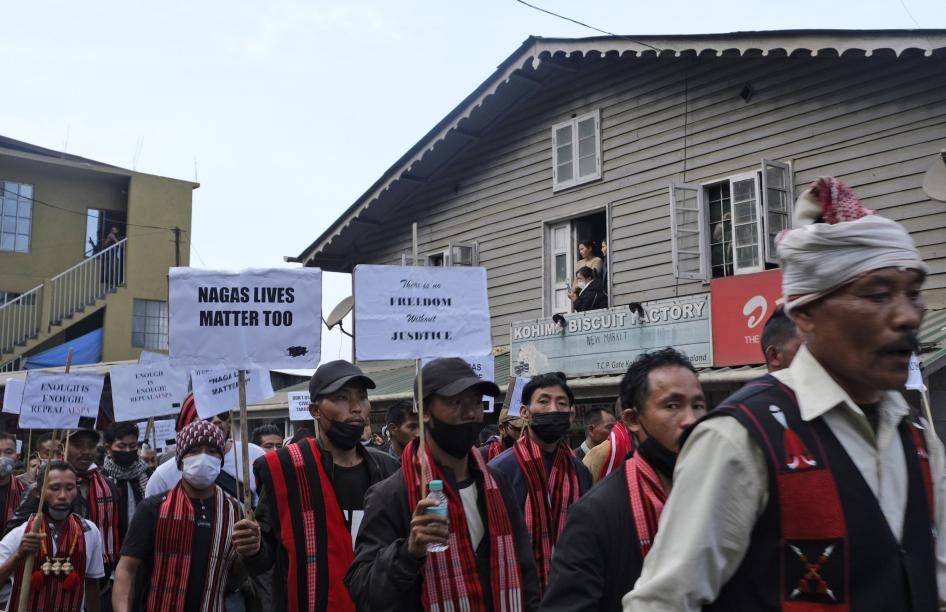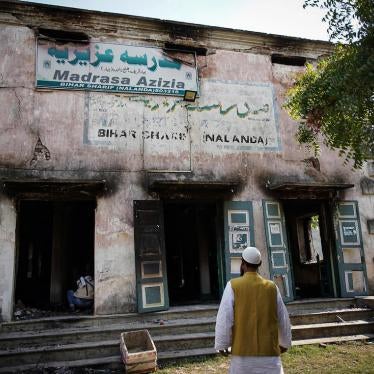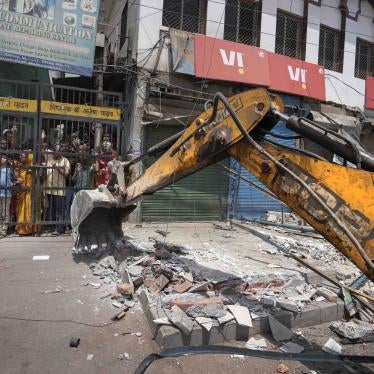Justice has once again been denied in India under the draconian, colonial-era Armed Forces Special Powers Act (AFSPA).
On December 4, 2021, soldiers from the 21 Para Special Forces army unit shot and killed six coal miners in Nagaland’s Mon district. The deaths led to violent clashes between local villagers and troops, and seven more civilians and a soldier were killed. A day later, soldiers killed another person after protesting villagers attacked their camp.
The army expressed regret after the public protests, explaining that soldiers thought the miners were militants. After criticism over what appeared to be a case of shooting first and asking questions later, the government promised an investigation.
Human Rights Watch urged the government to ensure those responsible be appropriately prosecuted.
In June 2022, the police filed charges against 30 soldiers, including a major, after a special investigation team found the military had used “wrong positive identification without proper application of mind,” and that the miners were shot “with a clear intention to kill.” The accused major’s wife approached the Supreme Court, winning a stay on the trial, because the government had not sanctioned prosecution as is required under the AFSPA.
This week, the Indian government denied permission to pursue the prosecution. This follows a predictable pattern of impunity under the AFSPA. The law, which applies to army units deployed to counter insurgent groups, gives wide powers to use indiscriminate force but provides soldiers with effective immunity from prosecution. In 2018, the Defence Ministry informed parliament that it had denied all 50 requests from the Jammu and Kashmir state government for civilian prosecution of soldiers since 2001.
The Supreme Court, in a landmark 2016 decision, said any excessive or retaliatory use of force under the AFSPA resulting in death requires a thorough inquiry, and ordered an investigation into alleged unlawful killings by security forces in Manipur state. The central government, however, has denied permission to prosecute those found responsible, citing the AFSPA.
Numerous government-appointed commissions in India, as well as several United Nations human rights bodies, have recommended repealing the law. But in the face of resistance from the army, which says it will harm troop morale, the government has failed to implement the recommendations.
The AFSPA has long shielded India’s armed forces from responsibility for grave human rights abuses and denied justice to the families harmed. It should be repealed immediately to save lives.










